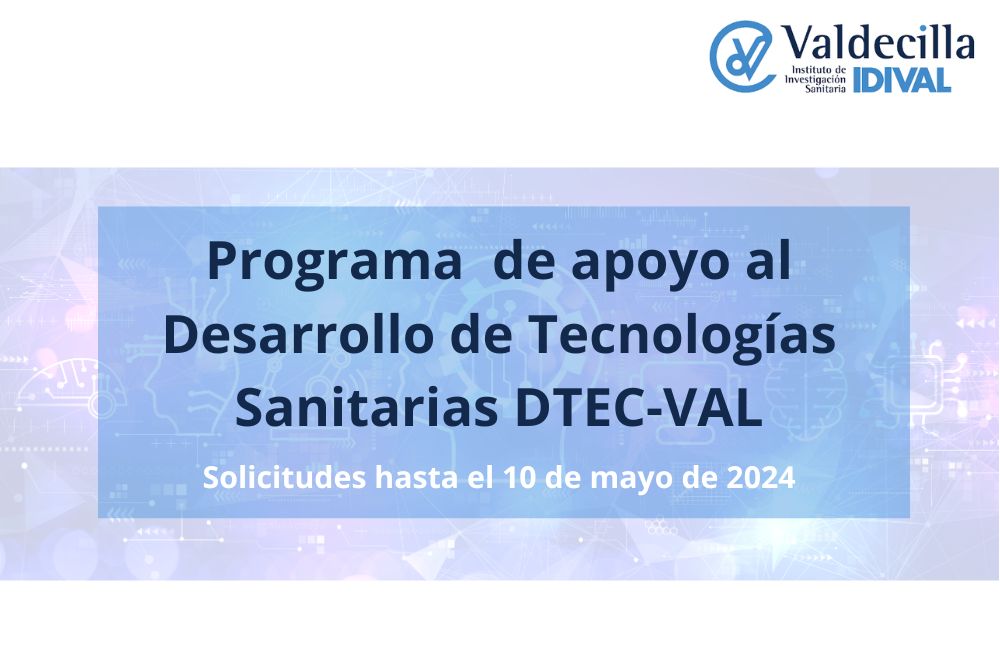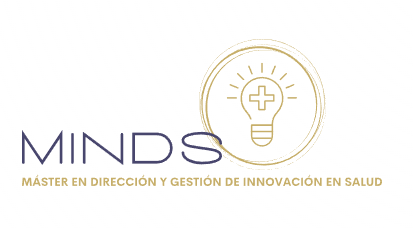Registrations for the DTEC-VAL programme are open until 10 May.
The Valdecilla Health Research Institute (IDIVAL) is once again launching the DTEC-VAL programme to support the Development of Health Technologies, a call for applications as part of the Programme of Aid for the Promotion of Biosanitary Research (PLADIBIO).
The aim of the DTEC-VAL programme is to promote innovation in general and specifically to support the development of health technologies in our environment through the funding of late-stage innovation projects that facilitate collaboration between the health sector, the university environment and companies.
Applications can be made until 10 May via this link on the IDIVAL website and any queries related to the procedures and the project can be sent to the email address proyectos2@idival.org
The duration of the projects will be 1 year and the maximum amount to be granted per project is €20,000. The funding granted may finance all or part of the project.
Project requirements
In general, newly developed projects that show potential for transfer to the National Health System will be considered eligible. Projects may also be partially developed at university and in companies.
The thematic scope includes the areas of Biomedicine, Electromedicine, Pharmaceutical Technologies, Health Technologies and Sciences, as well as Biotechnology, Chemical Technology and Materials applied to human health and Information and Communication Technologies applied to health and health, as well as any others related to innovation in health systems.
Innovation projects must be developed mainly in the public health environment of Cantabria and must be aimed at innovation and development in the health field. The project must have a previous protected development or in the protection phase in which an institution of the Public Health System of Cantabria participates in at least 50%, at TRL 3 or higher.
Documentation required
Together with the application, the following documents must be submitted
- Report of the research project in standardised format.
- CV of the members of the research team. Available at: https://cvn.fecyt.es/ and on the IDIVAL intranet.
- In the case of participation of companies, a letter signed by the company representative expressing knowledge of the project presented and interest in participating will be required. Declarations of interest will also be accepted from companies, institutions or scientific societies or patient groups that do not participate in the project.
- Letter of acceptance from the centre. A letter signed by the person responsible for the centre where the study is being carried out (Director of the centre in the health field, corresponding Vice-Rector at the University of Cantabria) must be submitted, indicating the express interest in the project submitted to the call for proposals.
- Report from the Innovation Support Unit. A report must be submitted reflecting IDIVAL’s participation in the project, the maturity of the technology under development, the state of industrial protection and its TRL.
- Studies carried out in clinical settings must have written authorisation from the management of the centre and the head of the main unit or department, which must be provided at the time of the application.
- In the case of participation as collaborating researchers of staff from the University of Cantabria who do not belong to IDIVAL groups, the authorisation of the Vice-Rector for Research of the University of Cantabria will be required.
- When the research involves individuals, the projects must have all the reports and authorisations of the Medicines Research Ethics Committee (CEIm) and of any other collegiate bodies responsible for ensuring compliance with the existing agreements and regulations on research. Likewise, in the case of clinical trials, authorisation will be required from the Spanish Agency for Medicines and Health Products (Agencia Española de Medicamentos y Productos Sanitarios). Similarly, when experiments are carried out on animals, the relevant permits from the Research Bioethics Committee of the University of Cantabria will be required. The documentation referred to in section g) shall be submitted once the project has been awarded.






















